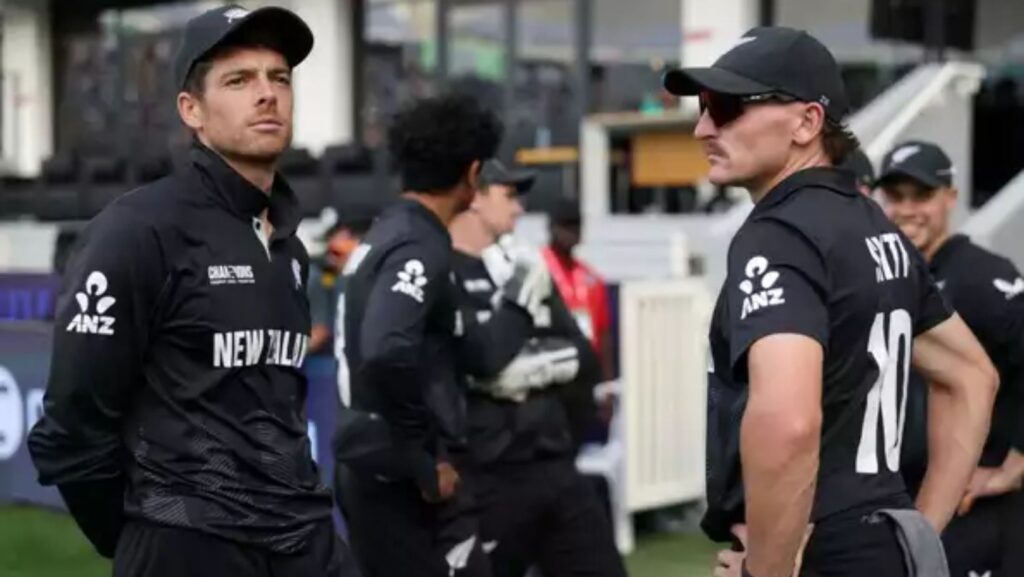The repeated failure of a cricket team while trying to get past semifinals and finals to win an ICC championship begins to feel like a curse that intensifies after every unachieved goal. India experienced 11 years of ICC trophy disappointment from 2013 until they won the T20 World Cup and ended their desert period. New Zealand stands as a team which has entered numerous finals yet does not possess any ICC titles in either of the white-ball formats.
A Pattern of Near Misses
Since their 2000 Champions Trophy triumph, New Zealand has reached five white-ball ICC tournament finals—each time falling agonizingly short. Their latest disappointment came in Dubai, where India once again denied them the silverware. It’s a cycle that keeps repeating: the 2009 Champions Trophy final against Australia, the crushing defeat in the 2015 ODI World Cup final, the gut-wrenching heartbreak of 2019’s Super Over loss to England, and the missed opportunity in the 2021 T20 World Cup final against Australia. This latest final only added another painful chapter to their history.
Captain Mitchell Santner tried to remain composed, but his frustration was clear: “They’re starting to add up now. But if you’re making finals, you’re playing good cricket. We just keep running into top teams in the big games.” Much like a player placing a bold bet in 1xbet—high risk, high reward. If it pays off, it sets the tone for everything that follows. In 1xbet download apk, where a player keeps coming close to a jackpot but never quite lands it, the Black Caps seem to be stuck in an endless loop of “almost, but not quite.”
What Went Wrong This Time?
New Zealand’s 2025 Champions Trophy final against India in Dubai followed a script that’s become all too familiar. They started well, dominating the powerplay with 69 runs. At one stage, 275 looked like a realistic target. But just like in previous knockout matches, they faltered in the middle overs. India’s spinners, relentless as ever, applied the chokehold, and New Zealand’s run rate plummeted. By the time Michael Bracewell’s late surge pushed them past 250, the damage was already done.

Santner admitted that the batting collapse was a turning point: “We thought 275 was within reach, but we lost wickets at crucial moments. The way India squeezed us in the middle overs made things really difficult.” New Zealand’s struggles deepened when they lost their top bowling strike bowler Matt Henry along with his ability to create problems for India’s starting batting line. The New Zealand bowling force suffered from a lack of potent attack capabilities because Henry was not present.
Rohit Sharma: The Final’s Game-Changer
Rohit Sharma became the game-changing factor of the contest when he delivered an offensive yet mindful score of fifty runs at the opening position. During the World Cup tournament the Indian captain provided key but short moments at bat until he elevated his game in the final match. According to Santner the presence of Rohit scares bowlers so much. Rohit Sharma detects the right moment to attack along with his skill for disrupting different lengths which significantly affects the game. His powerful play during the powerplay kept India stable at the asking rate which New Zealand painfully experienced numerous times. It’s reminiscent for India, Rohit’s knock did exactly that.
A Glimmer of Hope or an Unbreakable Curse?
Despite another final slipping through their grasp, New Zealand’s consistency in ICC events remains admirable. They fight, they reach the big stage, and they push top teams to the limit. But as Santner acknowledged, at some point, coming close isn’t enough: “You always want to win one of these. And I don’t know how many more chances we’ll get.” The question now is—will New Zealand finally break their white-ball final curse, or is this cycle destined to continue?

With the T20 World Cup just around the corner, another opportunity awaits. But history suggests that for the Black Caps, making the final is only half the battle—the real challenge is finishing the job.
